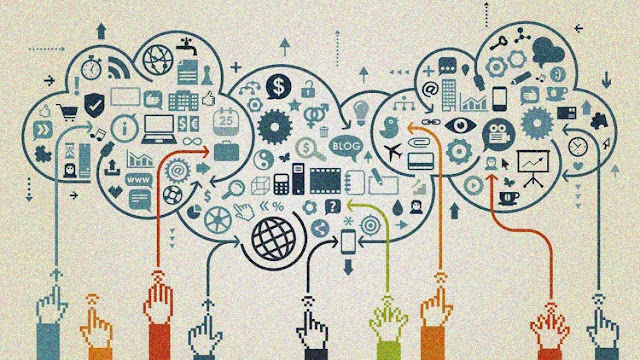Collective Intelligence
Case Study: Facebook
How knowledge community enabling collective intelligence?
Collective Intelligence (CI) is traditionally understood as the intelligence emerging from the interaction between interconnected, communicating individuals. Social network like Facebook enabling collective intelligence. Facebook is a social media platform that allows the community spread their knowledge and thoughts in it. Facebook collects knowledge from the individuals, people are involved in the participatory culture while they are sharing or spreading their knowledge on Facebook. For example, people can create a Facebook page for a topic and people who know things about the topic can share their knowledge of what they know on the page. Therefore, others that do not know anything about the topic can refer to their post and learn from the others. Facebook allows people to have and share an experience and to keep up with friends' current daily occurrences. It turned out that even strangers could be drawn in and shares their own pieces of their life as well. Collectively, the experiences shared from reviewing a book, or movie, or restaurant can influence others in a personal way that is not expected.
References link: https://www.brighthub.com/office/collaboration/articles/78668.aspx
How Facebook has created opportunities and challenges from the aspect of digital technologies?
Facebook creates an opportunity for people around the world gets connected together on one platform. It allows the participants to learn from one another, sharing information and make life easier. Facebook also help people improve their digital and social media skills. If you’re an entrepreneur, Facebook can show you ways to create a free online presence.If you’re a business owner Facebook are going to offer ways your business can expand its digital footprint and find new customers around the corner and around the globe. Facebook also help community members use technology to bring people together, with features like Events and Groups.It also offers a low-cost scalable platform for interacting with a huge audience.
The challenges are Facebook is lack of privacy protection.
The challenges are Facebook is lack of privacy protection.
Facebook's acquisition of facial recognition software face.com is concerning from a privacy perspective for two reasons.
First, it is unclear what Facebook intends to do with the facial recognition data face.com collected. Face.com has stated that its database includes over 30 billion face prints.
If this data is combined with the facial scans from the 300 million images Facebook users upload every day, it would likely create the largest (and largest privately-owned) facial recognition database in the world.
Second, as Facebook expands the tools face.com developed to use mobile devices to collect images and identify people, the security of the data becomes a real issue.
Facebook must show it has adequate measures in place to protect both the integrity of the face recognition data and its users' accounts from hacking and fraud.
Facebook Security
Want to see who has viewed your profile? There's a Facebook app for that. But you shouldn't be too quick to grant it permission to access your account.
Rogue Facebook apps, created by internet scammers and cybercriminals, want to access your personal data and hope to make money by luring you into following links.
These apps run on the Facebook platform itself (don't confuse them with the apps you run on your computer or smartphone), and - if you allow them - have access to your profile, your personal info, your photos.
The result is that you don't know who you are sharing your information with, and who is going to access it. The apps can even present themselves as though they are entirely located on Facebook - even when hosted on third-party websites that could be under the control of any Tom, Dick and Harry.
Most chilling of all, rogue Facebook apps can actually post messages in your name - tricking your online friends into thinking that it's you spreading a link, which could be designed to infect their computers or steal further information.
Maybe Facebook should learn a lesson from Apple? Apple reviews all iPhone/iPad apps before they are allowed in the iOS App Store. That doesn't just stop yet another fart app, it also makes it harder for hackers to spread dangerous code via this route. Whatever Apple is doing, it seems to be doing it right.
Users need to think carefully about what data they upload to Facebook - that's the one sure way of ensuring it is never grabbed by a rogue app.



Comments
Post a Comment